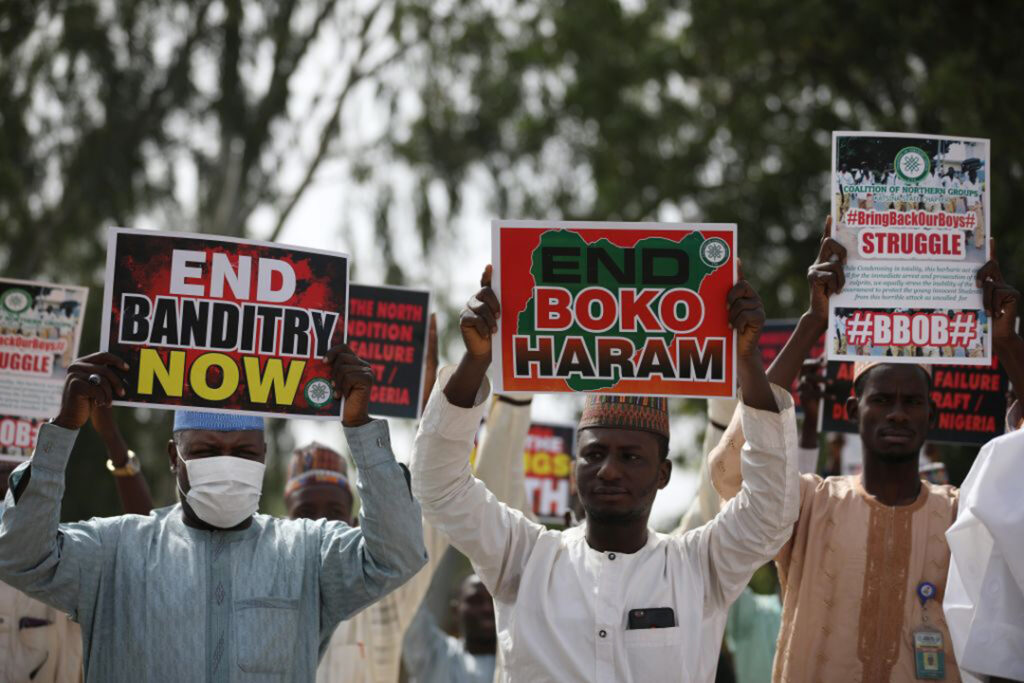ADF STAFF
When the extremist group Boko Haram kidnapped 276 schoolgirls in the remote town of Chibok, Nigeria, in 2014, it horrified the world.
International headlines catalyzed into a huge campaign by celebrities, politicians, governments and rights groups across television, newspapers and social media.
In 2016 and 2017, more than 100 girls were freed, but at least 100 of the remaining girls are still thought to be captive.
But Boko Haram’s kidnapping strategy has gained it notoriety, adherents and, in some cases, ransom payments.
“The group was relatively unknown before their kidnap of the Chibok girls,” Nigerian researcher Hakeem Onapajo said to online network The Conversation. “So that itself popularized the group.
“Children are very strategic to their activities. Because of the emotional aspect of children, they feel the government would easily listen to them.”
Islamist terrorists and other armed groups have followed Boko Haram’s blueprint and have turned kidnapping into a lucrative business.
Abductions at schools have risen sharply since December 2020, when Boko Haram took more than 300 boys. In that case, however, the terrorist group struck in northwestern Katsina State, hundreds of kilometers from the restive northeastern region where the group has been based for more than a decade.
In February, bandits dressed as Soldiers kidnapped 27 students from the Government Science College Kagara in Niger State. Two weeks later, armed men took about 300 girls from a secondary school in Zamfara State, which is west of Katsina State and north of Niger State.
More recently, gunmen took 39 students from the Federal College of Forestry Mechanization in March. A month later, kidnappers took 23 students from Greenfield University, murdered five and demanded a ransom of $100 million Naira ($262,405) and 10 motorcycles.
Nasir El-Rufai, governor of Kaduna State, where both recent attacks occurred, said his government will not negotiate with bandits.
Ransom payments, something typically denied by government officials, has fueled the growth industry of kidnapping. At least $18 million was paid to kidnappers between June 2011 and March 2020, according to a report by Nigerian intelligence company SB Morgen.
Nigerian President Muhammadu Buhari tweeted a rebuke, saying, “State Governments must review their policy of rewarding bandits with money and vehicles. Such a policy has the potential to backfire with disastrous consequences.”
Experts point to several root causes for the rash of abductions.
“Many things fuel the kidnap economy, chief of which are poverty, unemployment, and inequality,” SB Morgen partner Cheta Nwanze wrote for Nigerian newspaper Premium Times. “But ultimately, there are five pillars on which the kidnap industry thrives: Ungoverned spaces, gang formation, weapons acquisition, communications, and collusion.
“All of these are issues that can be dealt with if we are serious about solving the problem.”
Buhari has come under intense pressure for Nigeria’s lack of a cohesive strategy to confront terrorism and banditry.
Parliament on April 27 called on Buhari, the Armed Forces and police to address the country’s growing security crisis, with the lower house pressing Buhari to declare a state of emergency.
“The government has to have a new approach,” Onapajo suggested. “There should be much more commitment to international collaborations. There should be much more provision of the needed equipment for the soldiers.
“And also, they should be much more focused on non-military approaches. Much more focus should be on how to introduce programs that will prevent the easy recruitment and attacks of children in that region.”

